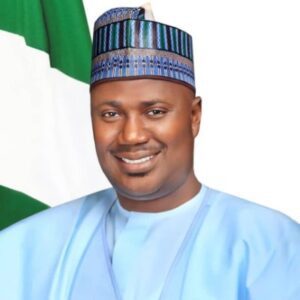


CIBN, Body of Bank CEOs to partner EFCC in combating financial crimes
The fight against corruption has been described as a patriotic duty that must not be left only to the Economic and Financial Crimes Commission (EFCC) but a collective duty of all. This assertion was made by the Executive Chairman of the EFCC Mr. Ola Olukoyede when he received in audience in his office members of the Body of Banks CEOs and the President/Chairman of Council of The Chartered Institute of Bankers of Nigeria (CIBN).
The CIBN and the Body of Banks’ CEOs, according to Dr Opara, “would like to use the occasion to reaffirm its commitment towards combating Financial Crimes in Nigeria in collaboration with the EFCC and to reinforce the banking industry’s commitment to collaborate in the same regard.”
During the meeting, the representative of the Chairman Body of Banks’ CEOs Mr. Lamin Manjang, congratulated Mr. Ola Olukoyede on his appointment as the Executive Chairman, EFCC.
He also commended his leadership for the efforts to re-brand the image of the EFCC, as an institution that embraces professionalism whilst prioritizing humaneness in the conduct of its operations. This demonstrates a firm commitment to mobilise and foster widespread participation in the anti-corruption crusade.
Mr. Manjang commended the Commission for the significant progress made in combating corruption, as evident in its adherence to international conventions and protocols aimed at proactively deterring corrupt practices through effective policies and inclusive stakeholders’ participation.
He noted the Commission’s outstanding achievement in securing a total of 3,785 convictions in 2022, which stands as the highest number attained by any law enforcement agency in the world within a single year. Additionally, he acknowledged the Commission for its continued dedication, as evidenced by the record of 1,688 convictions recorded between January and September 2023. This remarkable accomplishment reflects the Commission’s unwavering commitment to upholding justice and the rule of law in our society.
The President/Chairman of Council of CIBN, Dr. Ken Opara noted that as part of efforts to entrench Ethics and Professionalism in the banking industry, all staff of banks now go through a mandatory Annual Ethics Certification Programme which is conducted by the Institute.
Dr. Opara also hinted at plans by the CIBN to establish a Banking School funded by the human capital development funds instituted by the Body of Banks CEOs to further reinforce the crusade on observance of ethics and professionalism within the banking industry, thereby complementing the EFCC’s objectives.
Dr. Opara further stated that the Institute working with the Body of Banks’ CEOs would like to institutionalise a collaborative capacity building programme for the staff of EFCC to deepen their knowledge and competence in the area of Banking and financial operations. The platform will also allow EFCC to share with bankers insights on how to curb financial crimes.
Opara opined that such symbiotic relationships will help the anti-graft agency in achieving its objectives whilst promoting the growth of the economy.
The collaboration of CIBN and the Body of Banks’ CEOs with EFCC underscores the commitment towards promoting ethics, professionalism, and transparency within the banking sector, Dr. Opara asserted.
In his response, the Executive Chairman of the EFCC, Mr. Ola Olukoyede expressed appreciation to the CIBN and the Body of Banks’ CEOs for the visit and for the proposal to collaborate with the Commission in combating financial crimes. The EFCC emphasised its renewed policy objectives to enhance engagement with stakeholders and pledged to review its operational guidelines to align with best practices.
The EFCC Chairman also welcomed the proposed collaborative capacity-building initiative between the commission and banks which is aimed at improving skills and competencies of the staff of the Commission as well as bankers.
Furthermore, the EFCC Chairman emphasised the importance of playing by the rules in the best interest of the country, whilst encouraging ongoing engagement with regulatory authorities.



